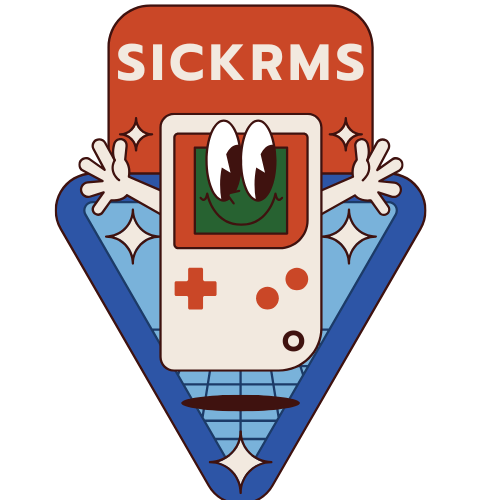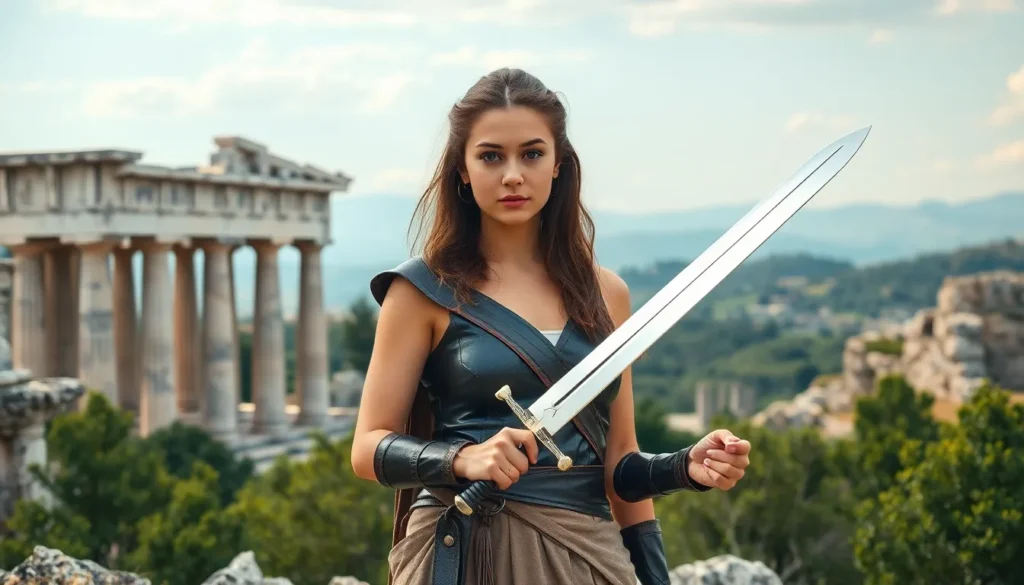In a world overflowing with stories, myth-inspired narratives stand out like a unicorn at a dog show. These tales, steeped in ancient lore and larger-than-life characters, have a unique ability to captivate audiences and spark the imagination. From epic quests to tragic romances, they remind us that the extraordinary often hides in the shadows of the ordinary.
What makes these myth-inspired storylines irresistible? They weave timeless themes of heroism, betrayal, and redemption into plots that feel both fresh and familiar. Whether it’s a modern retelling of a Greek tragedy or a whimsical twist on Norse legends, these stories invite readers to explore the depths of human experience while chuckling at the absurdity of it all. Dive into the enchanting world of myth-inspired storytelling and discover why these age-old narratives remain relevant and entertaining today.
Table of Contents
ToggleOverview of Myth-Inspired Storylines
Myth-inspired storylines draw from ancient tales, offering a rich tapestry of narrative possibilities. They engage audiences by integrating universal themes such as heroism, betrayal, and redemption. Classic characters from Greek, Norse, and Egyptian mythology resurface in modern adaptations, often taking on new roles. Such narratives invite fresh interpretations while maintaining the core essence of their origins.
Heroes embark on quests, often facing formidable challenges that test their character. Their journeys reflect timeless struggles, resonating with contemporary experiences. This blend of the timeless and the modern creates a unique storytelling dynamic, appealing to various audience segments.
Villains in these stories frequently embody archetypes rooted in myth. Figures such as Loki or Medusa receive modern reinterpretations, enhancing their complexity. These characters, often driven by flawed motivations, illustrate the duality of good and evil.
Themes of fate and free will surface prominently in many myth-inspired tales. Characters grapple with destiny while making choices that steer their paths. This exploration prompts readers to consider the balance between predetermined fate and personal agency.
Cultural significance also enriches these narratives. Each myth carries with it historical context and societal values that inform character motivations and conflicts. As new generations revisit these stories, they may reinterpret underlying messages to reflect current societal issues.
Myth-inspired storylines serve as a bridge between past and present, showcasing the enduring power of ancient narratives. The intimacy of these tales fosters a sense of connection, reminding audiences of shared human experiences across time.
Importance of Mythology in Storytelling

Mythology plays a crucial role in storytelling, offering depth and relevance through its narratives.
Cultural Significance
Myths enrich cultures, reflecting societal values and beliefs. Ancient stories encapsulate historical perspectives, guiding modern interpretations of human behavior. Various cultures employ mythological characters to explore morality, ethics, and identity. The tales often highlight the struggles faced by societies, shaping a collective understanding of human experiences. Through these narratives, people connect with their heritage, preserving traditions for future generations. Each myth serves as a cultural artifact, providing insight into the priorities and fears of the time it represents. Contemporary adaptations resonate with audiences while maintaining cultural integrity.
Universal Themes
Universal themes emerge from mythological stories, creating connections across diverse audiences. Common motifs, such as heroism, love, and sacrifice, forge relatable experiences. Many characters undergo transformative journeys that mirror individual growth, making them relevant to modern readers. The battle between good and evil showcases moral dilemmas that resonate across time and cultures. Further, themes of fate versus free will challenge characters to confront their destinies, sparking reflections on personal agency. By embedding these timeless elements, myth-inspired narratives remain engaging, highlighting the shared human experience.
Classic Examples of Myth-Inspired Storylines
Myth-inspired storylines draw extensively from ancient narratives, creating a rich and engaging experience for audiences. They encompass various mythologies, each with timeless characters and themes.
Greek Mythology
Greek mythology frequently resurfaces in modern storytelling. Characters like Hercules embark on heroic quests, showcasing themes of strength and perseverance. The tale of Odysseus reflects challenges like enduring love and the desire for home. Additionally, stories involving gods such as Zeus and Athena illustrate the relationship between mortals and deities, emphasizing moral dilemmas and fate. Contemporary adaptations often reimagine these characters, allowing them to confront modern issues while retaining their essence.
Norse Mythology
Norse mythology offers a treasure trove of inspiration for today’s narratives. Iconic figures such as Thor and Loki embody complex traits and moral questions. Thor’s battles against giants highlight themes of bravery, while Loki’s cunning nature presents the duality of good and evil. Stories like Ragnarok depict inevitable destinies, showcasing how characters face their fates. Modern reinterpretations often infuse these ancient tales with contemporary elements, fostering relatable connections to today’s audiences.
Egyptian Mythology
Egyptian mythology enriches stories with its unique gods and legends. Deities like Osiris and Isis symbolize love, loss, and resurrection, central themes that resonate universally. The myth of the journey to the afterlife introduces elements of morality and justice, prompting characters to reflect on their choices. Adaptations often weave these ancient beliefs into modern tales, offering fresh perspectives while honoring the original narratives. This blend encourages audiences to explore themes of life and death in a contemporary context.
Modern Adaptations and Interpretations
Modern adaptations of myth-inspired narratives create a vibrant tapestry that resonates with contemporary audiences. They infuse ancient stories with fresh perspectives, allowing classic themes to evolve in exciting ways.
Film and Television
Film and television frequently adapt mythological tales, bringing characters and plots to life for new generations. Productions like “Clash of the Titans” revive Greek myths, showcasing heroes like Perseus battling monstrous creatures. Shows such as “American Gods” explore the conflict between old and new deities, reflecting cultural shifts in belief systems. Adaptations leverage visual storytelling techniques to enrich traditional narratives, often packing them with modern societal commentary. These visual mediums enable viewers to connect with timeless themes, creating lasting impact and engagement.
Literature
Literature serves as a fertile ground for myth-inspired storytelling, allowing authors to reimagine familiar tales. Novels like “Circe” by Madeline Miller reinterpret the life of the infamous witch from Homer’s “Odyssey,” providing depth and empathy. “The Song of Achilles,” also by Miller, rebalances the narrative, centering on love and tragedy within the backdrop of the Trojan War. Fictional works weave mythic elements into contemporary settings, exploring complex themes such as identity and purpose. These written adaptations continue to engage readers, prompting reflection on the relevance of myth in the modern day.
Video Games
Video games increasingly incorporate mythological elements, transforming narratives into interactive experiences. Titles like “God of War” draw from Norse mythology, following Kratos as he confronts gods and monsters, all while challenging notions of fate. “Hades” provides a unique take on Greek mythology, featuring characters like Persephone and Hades in a rogue-like narrative filled with action and exploration. Players engage with myth-inspired storylines by making choices that impact the game’s outcome, providing immersive experiences that enhance character development. These adaptations contribute to the evolution of storytelling, merging ancient lore with modern gameplay techniques.
Impact on Contemporary Storytelling
Myth-inspired narratives significantly influence contemporary storytelling. Their rich, timeless themes effortlessly captivate modern audiences, making ancient tales relevant today.
Character Development
Characters in myth-inspired tales undergo thorough development, reflecting the human experience. Mythological heroes and villains embody complex motivations that resonate across cultures. For instance, Hercules represents strength and perseverance, facing challenges that mirror individual struggles. Similarly, Loki showcases the duality of good and evil, prompting reflections on moral ambiguity. These characters evolve in modern adaptations, gaining depth while retaining their archetypal attributes. Transformative journeys, rich with triumph and failure, highlight personal growth, fostering a connection with audiences. Thus, mythological roots strengthen character arcs, making them relatable to contemporary viewers.
Plot Structures
Plot structures in myth-inspired stories often intertwine with universal themes. Quests serve as central elements, driving characters toward conflict and resolution. Storylines frequently feature trials and tribulations, reflecting human resilience. For example, the hero’s journey framework has its origins in these ancient tales, enabling narratives that explore adventure and transformation. Characters typically confront fate versus free will, enriching plot dynamics with moral dilemmas. Each adaptation maintains core mythological elements while incorporating modern societal issues. Consequently, these structures enhance relatability and engagement, ensuring continued relevance in current storytelling.
Conclusion
Myth-inspired storylines continue to thrive in modern storytelling. They weave together ancient wisdom with contemporary themes that resonate deeply with audiences. By revisiting timeless characters and narratives, creators breathe new life into these stories while preserving their core essence.
These adaptations not only entertain but also foster a deeper understanding of human experiences. They challenge viewers and readers to reflect on their own lives through the lens of myth. As long as these narratives exist, they’ll remain a vital part of cultural expression, bridging the past and present in a way that speaks to the universal human condition.






